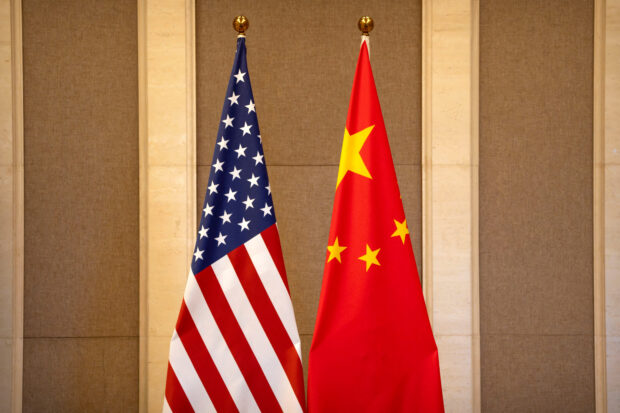Apec growth seen to slow as stubborn inflation, US-China tensions weigh

U.S. and Chinese flags are set up before a meeting between U.S. Treasury Secretary Janet Yellen and Chinese Vice Premier He Lifeng in Beijing, China on July 8, 2023. Mark Schiefelbein/Pool via REUTERS/File photo
SAN FRANCISCO – Economic growth among Asia Pacific Economic Cooperation countries is expected to decline next year and remain below the global average as higher interest rates slow U.S. growth, as China continues to struggle with its recovery and tensions between the two hamper trade, the body said on Sunday.
The Apec Secretariat’s Policy Support Unit issued new forecasts on the eve of the Apec leaders’ summit in San Francisco, showing that the 21-country region’s growth rate would dip to 2.8 percent in 2024 from 3.3 percent in 2023.
The Apec GDP growth rate will average 2.9 percent in 2025 and 2026, below the global average of 3.2 percent and 3.5-3.6 percent in the rest of the world.
Among key downside risks for the Pacific Rim region are persistent inflation associated with export restrictions, weather conditions that have raised the price of rice and other agricultural products, and disruptions in the fertilizer supply chain. Taming inflation could require more monetary policy tightening, slowing growth further.
Trade volume growth for goods is set to rebound next year among Apec countries after a largely flat 2023 due to China’s sluggish growth, rising to 4.3 percent for goods exports and 3.5 percent for goods imports. But growth of both exports and imports are forecast to peak at 4.4 percent in 2025, declining slightly in 2026 due to geo-political fragmentation that is disrupting longstanding supply relationships.
Carlos Kuriyama, director of the Apec policy support unit, said the data show that it was important for the U.S. and China to patch up their differences after years of tariff battles and national security export restrictions.
U.S. President Joe Biden and Chinese President Xi Jinping are expected to meet in-person for the first time in a year on Wednesday in a high-stakes session aimed at curbing tensions between the world’s two largest economies.
Kuriyama said that national security-driven export controls and other restrictions between the U.S. and China are driving up costs in supply chains that were previously optimized for efficiency. While a full return to pre-COVID-19 trading patterns is not possible, avoiding further fragmentation is important, he added.
The data shows “how important it is to re-engage, de-risk and avoid decoupling” of the U.S. and Chinese economies. “I think a stable relationship within U.S. and China is a win-win situation for everyone,” Kuriyama said.